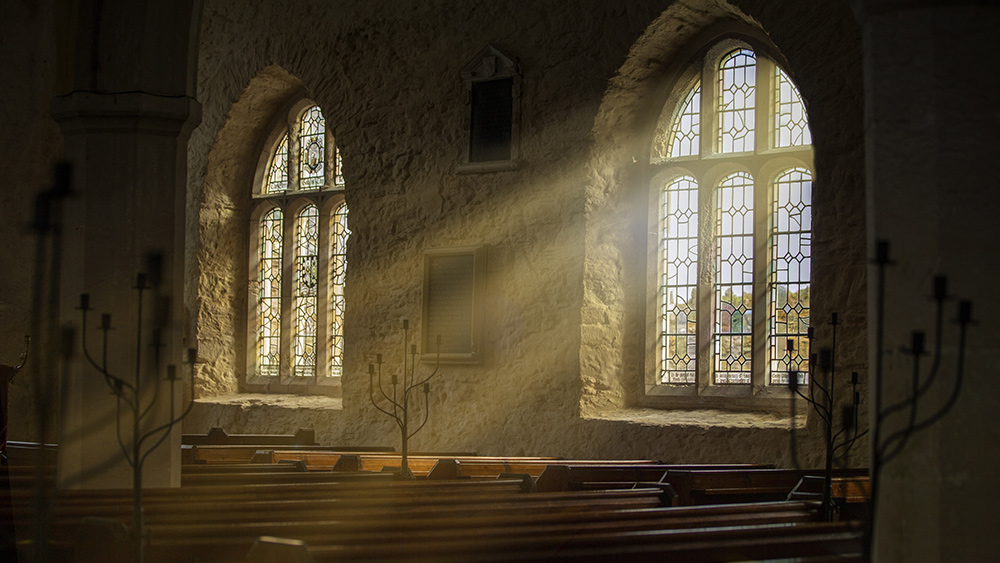(Divina Ramirez) Engineers from Rice University in Houston developed a novel method of generating power through the use of glowing “windows” that redirect light to the solar cells lining their edges. The windows, known as luminescent solar concentrates (LSCs), are composed of a conjugated polymer sandwiched between two acrylic panels.
by Divina Ramirez, August 5th, 2021
The polymer, a light-emitting compound dubbed PNV (poly[naphthalene-alt-vinylene]), is designed to absorb light from the sun and other light sources indoors before channeling it toward the solar cells along the edge of each window pane. The solar cells then convert the light into electricity as usual.
PNV initially absorbed and emitted only red light. But the engineers modified it so that it can absorb light in a variety of colors. Lead author Yilin Li said he began the project as part of a “smart glass” competition. But it quickly grew into a study motivated by the need to solve energy issues for buildings.
Solar rooftops have long been the mainstream solution to that problem. But according to Li, solar panels need to be oriented toward the sun to maximize their efficiency. Their appearance is not very pleasing either. The solution Li and his team came up with was integrated photovoltaics. He said the idea was to build colorful, transparent or translucent solar collectors and apply them to the outside of buildings.
Their research paper appeared online in the journal Polymer International.
“Windows” could generate power from light
Conjugated polymers are organic macromolecules that can be modified to have specific properties, physical or chemical, for a variety of applications. Today, conjugated polymers are typically used to fabricate organic light-emitting diodes (LED) and optoelectronic devices because of their unique optical properties.
Experts have developed many kinds of luminophores–atoms that manifest luminescence–over the last decade. But experts have rarely done the same using conjugated polymers, said Rafael Verduzco, a professor of chemical and biomolecular engineering at Rice University who also took part in the research.
Part of the problem with using conjugated polymers is that they can be unstable. They can also degrade rather quickly. “But we’ve learned a lot about improving the stability of conjugated polymers in recent years,” said Verduzco. In the future, they may be able to engineer the polymers for stability and optical properties.
However, it is worth noting that the amount of power generated by the luminescent panels is far less than that collected by the average solar cells used in commercially available panels. Those panels routinely convert roughly 20 percent of sunlight into electricity.
But the good thing about the group’s luminescent panels is that they never stop working. The panels routinely convert light from inside the building into electricity even after the sun has gone down.
When the group tested how the panels convert sunlight and ambient LED light into electricity, they found that the panels had a power conversion efficiency of 2.9 percent in direct sunlight and 3.6 percent under ambient LED light. This means that the panels were more efficient at converting ambient LED light into electricity.
The group also simulated the return of energy from panels as big as 120 square inches. They found that panels like these would provide less energy. But they would still contribute to a household’s needs.
Li suggested that their polymer compound could also be modified to convert infrared and ultraviolet light into electricity. Both lights would allow the panels to remain transparent instead of colored.
PNV may even be printed in patterns on the panels so that they can be turned into artwork, said Li.
Stillness in the Storm Editor: Why did we post this?
The news is important to all people because it is where we come to know new things about the world, which leads to the development of more life goals that lead to life wisdom. The news also serves as a social connection tool, as we tend to relate to those who know about and believe the things we do. With the power of an open truth-seeking mind in hand, the individual can grow wise and the collective can prosper.
– Justin
Not sure how to make sense of this? Want to learn how to discern like a pro? Read this essential guide to discernment, analysis of claims, and understanding the truth in a world of deception: 4 Key Steps of Discernment – Advanced Truth-Seeking Tools.
Stillness in the Storm Editor’s note: Did you find a spelling error or grammatical mistake? Send an email to [email protected], with the error and suggested correction, along with the headline and url. Do you think this article needs an update? Or do you just have some feedback? Send us an email at [email protected]. Thank you for reading.
Source:
https://www.naturalnews.com/2021-08-05-luminescent-windows-turn-light-into-power.html
Support our work! (Avoid Big Tech PayPal and Patreon)DIRECT DONATION

Leave a Reply